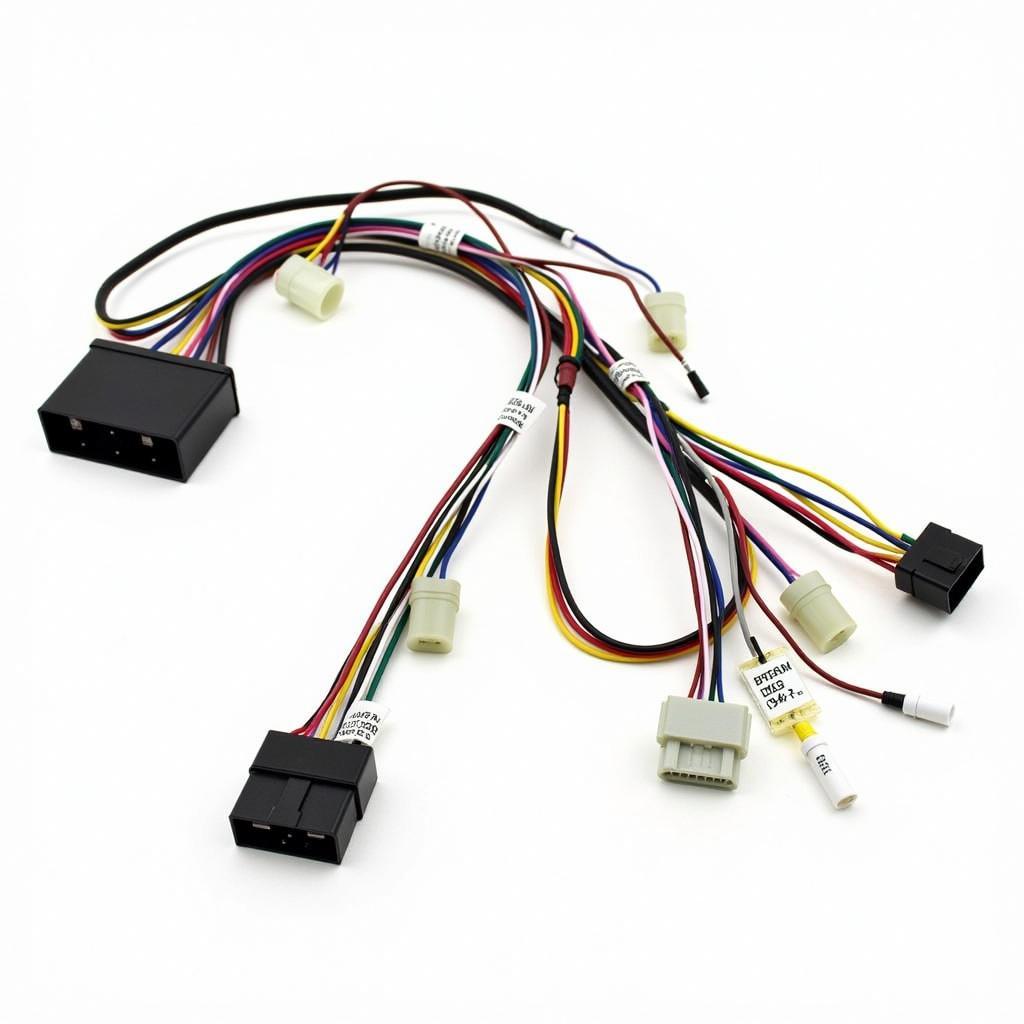Car sensors are essential components that monitor various aspects of your vehicle’s performance, ensuring optimal operation and driver safety. However, these sensitive components can be susceptible to damage from dirt, grime, and harsh weather conditions. Regular maintenance and preventative measures can significantly protect your car sensors and extend their lifespan.
Understanding Car Sensors and Their Importance
Car sensors play a crucial role in modern vehicles, gathering data and relaying it to the electronic control units (ECUs) that manage various functions, including:
- Engine Management: Sensors monitor engine parameters like air intake, exhaust gases, engine speed, and coolant temperature. These readings help the ECU optimize fuel injection, ignition timing, and other critical functions.
- Transmission and Drivetrain: Sensors measure the transmission fluid temperature, engine speed, and wheel speed, allowing the ECU to control gear shifting and maintain smooth acceleration and braking.
- Safety Systems: Sensors for airbags, anti-lock brakes, traction control, and lane departure warning systems play a vital role in enhancing driver safety by detecting potential hazards and initiating corrective measures.
- Comfort and Convenience: Sensors for climate control, parking assist, and other convenience features enhance the driving experience.
How Dirt and Weather Affect Car Sensors
Dirt, grime, and harsh weather elements can negatively impact car sensors in several ways:
- Clogging and Blockage: Dirt and debris can accumulate on the sensor surface, obstructing its ability to accurately measure readings.
- Corrosion: Moisture and salt from rain, snow, or road spray can cause corrosion on sensor components, leading to malfunctions and inaccurate readings.
- Signal Interference: Dirt and grime can interfere with the electrical signals transmitted by the sensor, disrupting its communication with the ECU.
- Physical Damage: Rocks, gravel, and other debris can physically damage sensors, causing them to malfunction or fail completely.
Best Practices for Protecting Car Sensors
Here are some practical tips to protect your car sensors from dirt, grime, and harsh weather:
- Regular Cleaning: Regularly clean your car, focusing on areas where sensors are located, such as the engine bay, wheel wells, and undercarriage. Use a mild cleaning solution and soft brushes to avoid damaging the sensors.
- Protective Covers: Use protective covers for sensors that are exposed to harsh conditions. This can include covers for the engine air intake, oxygen sensor, and other vulnerable sensors.
- Avoid Pressure Washing: While pressure washing can be effective for cleaning dirt, it can also damage delicate sensors. Use a gentle stream of water or a specialized car wash with a low-pressure setting.
- Weatherproofing: Seal any cracks or gaps in the engine bay, undercarriage, and wheel wells to prevent moisture and debris from entering.
- Professional Inspections: Schedule regular maintenance appointments for your vehicle, including sensor inspections and cleaning.
Expert Insight
“Keeping car sensors clean and protected is essential for maintaining optimal vehicle performance and driver safety. Regular cleaning and preventive measures can prevent costly repairs and ensure your car functions smoothly,” says John Smith, a seasoned automotive technician with over 20 years of experience.
Frequently Asked Questions (FAQs)
- Q: How often should I clean my car sensors?
- A: It’s recommended to clean your car sensors at least every 6 months or more frequently if you drive in harsh conditions.
- Q: What happens if a sensor fails?
- A: A malfunctioning sensor can lead to reduced fuel efficiency, poor engine performance, or even safety issues.
- Q: Can I clean car sensors myself?
- A: While you can clean some sensors, it’s best to leave the cleaning of complex or sensitive sensors to a qualified technician.
Contact Us for Expert Car Maintenance
For expert car maintenance and sensor cleaning services, contact AutoTipPro today!
Phone: +1 (641) 206-8880
Address: 500 N St Mary’s St, San Antonio, TX 78205, United States
By following these tips and seeking professional maintenance, you can protect your car sensors, ensure optimal performance, and maximize your vehicle’s lifespan.





Leave a Reply